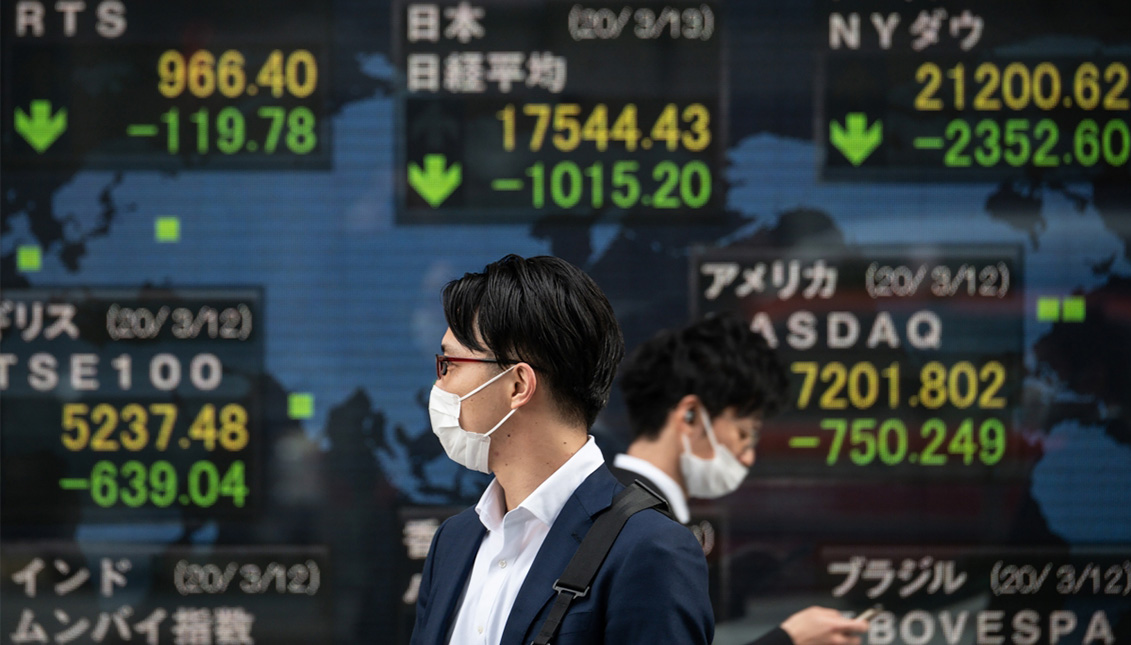
Keys to the Coronavirus: Why are Western countries failing to control the pandemic?
The US already has the second most cases of contagion, after Italy. The reasons, according to the eminent South Korean philosopher Byung-Chul Han, lie in the…
While countries such as South Korea, Japan, and even China, where the pandemic originated, are already in control of the situation and zero infections are recorded in some cases, Italy and the United States have become the epicenter of the chaos, with 59,138 and 35,070 detections, respectively, according to March 22nd figures.
These are alarming figures which, according to the philosopher Byung-Chul Han, author among others of The Society of Fatigue, are related to an abysmal cultural difference between Asian and Western society.
This is what he said in a column published today in the Spanish newspaper El País, where he warns of "overreacting" and "useless" measures, such as the closing of borders:
"We feel back in the era of sovereignty. It is the sovereign who decides on the state of emergency. It is the sovereign who closes borders. But that is a hollow display of sovereignty that is useless. It would be much more helpful to cooperate intensely within the Eurozone than to close borders in a crazy way," writes the philosopher. He also points out the "absurdity" of banning foreigners - Chul Han lives in Germany - because it is in Europe "where no one wants to come."
"At best, it would be more sensible to decree a ban on Europeans leaving, to protect the world from Europe. After all, Europe is currently the epicenter of the pandemic," he stresses.
For the Korean thinker, citizens of countries like Taiwan, Japan or Singapore, with a more authoritarian cultural tradition and mentality, trust the state much more, are more obedient and collectivist; above all, they believe in digital surveillance and the use of metadata to defend themselves from the pandemic.
"In Asia, one could say that epidemics are not only fought by virologists and epidemiologists but above all by computer scientists and macro-data specialists. This is a paradigm shift that Europe has not yet realized. Apologists for digital surveillance would proclaim that big data saves human lives," says Chul Han.
In China, for example, there are 200 million surveillance cameras with facial recognition that watch its citizens at all times in their public life. But they have also achieved something unthinkable in other privacy-friendly countries, where their citizens not only submit to corporate and government control through their own social networks but also watch over each other.
"It would be more sensible to decree a ban on Europeans leaving, to protect the world from Europe"
"In the vocabulary of the Chinese," says the philosopher, "the term 'private sphere' does not appear," which has facilitated the construction of a whole infrastructure for surveillance that is highly effective in containing an epidemic:
"When someone leaves the Beijing station he is automatically captured by a camera that measures his body temperature. If the temperature is of concern, all the people sitting in the same car are notified on their mobile phones."
There are also drones that fly over the streets stopping anyone who breaks quarantine.
Something similar occurs in Korea, where, in addition to the famous Crown-App, there are cameras in the buildings and a group of professionals called "trackers" who watch the video footage to follow those infected and the people with whom they have come into contact.
A society that may seem dystopian to many, but which has shown how it is no longer the sovereign who "absurdly" closes its borders, but the one who has the data.
RELATED CONTENT
Or masks. Those that are used specifically for the coronavirus in countries like Korea, which filter the air and even the Prime Minister wears them in his appearances. Masks and factories that are built to supply them.
While in the West the effectiveness of the masks is questioned or they are requisitioned as it happens in France because it is no longer possible to find them.
In the West, panic - "disproportionate," according to the writer - and 'fake news' are spreading as fast as the virus. And old war discourses that we haven't seen since the Cold War are being revived, talking about the virus as an invisible enemy but in a context of globalization, and of little contact with the "reality" that digitalization has brought about.
The financial markets were the first to panic about the epidemic. "Probably," he says, "the virus is just the little drop that has filled the glass. What is reflected in the financial market panic is not so much fear of the virus as fear of itself. The crash could also have occurred without the virus. Perhaps the virus is only the prelude to a much bigger crash."
"Let us hope that behind the virus comes a human revolution."
There is, however, a light at the end of this tunnel-full of what the West seems to have become and that is to rethink the system, this "destructive capitalism." Although not in the sense of China, with a digital police regime.
The possibility to which the South Korean thinker opens us has more to do with a human revolution:
"The virus will not defeat capitalism. The solidarity that consists of keeping our distance from each other is not a solidarity that allows us to dream of a different, more peaceful, more just society. We cannot leave the revolution in the hands of the virus. Let us hope that behind the virus comes a human revolution. It is WE, PEOPLE gifted with REASON, who have to rethink and radically restrict destructive capitalism, and also our unlimited and destructive mobility, to save ourselves, to save the climate and our beautiful planet."











LEAVE A COMMENT:
Join the discussion! Leave a comment.